METHODOLOGY
WHAT WE MEASURE

We evaluate Sustainability Reporting as it appears in the Annual Report and separate Sustainability Reports. These documents are the most credible for stakeholders, being immutable, auditable, and linked to a specific reporting period. They significantly influence ESG ratings and, consequently, the cost of capital impact. Recognizing their importance for all stakeholders, including minorities, we also monitor the accessibility of these reports on company websites.
HOW WE DEFINE REPORTING QUALITY
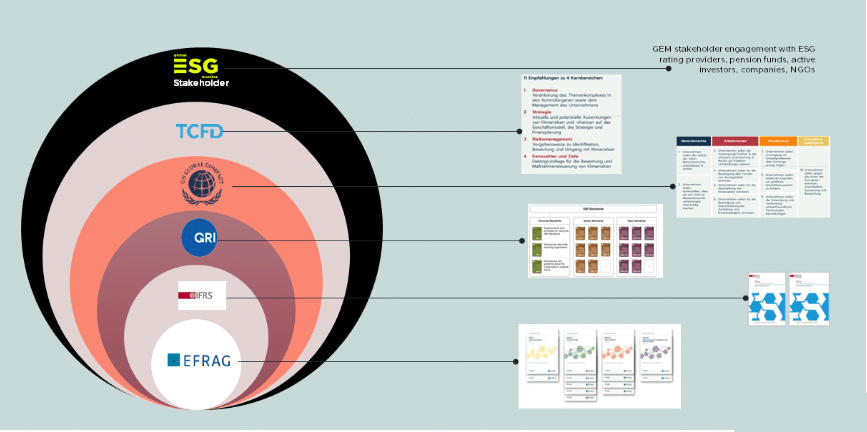
In operationalizing “quality” and “transparency” within sustainability reporting, we consulted various sources. These include legislation, standard setters, international governmental organizations (IGOs), and feedback from our own stakeholders, to whom we strive to be relevant.
We evaluate how effectively companies adhere to existing standards in sustainability reporting, rather than creating new ones.
HOW WE MEASURE QUALITY AND TRANSPARENCY
Our dimensions and principles offer context for data, enabling time- and peer-comparable reporting. We assess topics including both positive and negative impacts, risks, and opportunities. Following the companies’ definitions of material topics, we evaluate their strategic approach and their mastery and governance of change.
HOW WE ENSURE QUALITY OF RESEARCH
At GEM, we are committed to ensuring the highest quality in our research by adhering to the principles of objectivity, reliability, and validity.
In terms of objectivity, we utilize the GEM ASSAY™, a standardized and programmed survey, to reach an unbiased approach. We regularly conduct vulnerability tests to maintain the integrity of our processes. Moreover, our assessments are carried out by a team of trained analysts, comprising financial and ESG experts as well as empirical researchers, bringing diverse backgrounds and perspectives to our Analysis.
Diverse and Global: Our 40+ Strong Team of Academically Trained ESG & Reporting Specialists

When it comes to reliability, we ensure that our measurement questions are clearly formulated, allowing for consistent and accurate data collection. Our analysts undergo regular training cycles to keep their skills sharp and up-to-date. They are supported by a comprehensive knowledge base that includes manuals, glossaries, evaluation examples, and Q&As. To further ensure the accuracy of our work, we conduct extensive quality controls, increasing inter-analyst reliability and minimizing the impact of individual analyst biases.
Validity is ensured through our iterative approach, which allows us to continuously align with evolving regulatory requirements and stakeholder needs. Reflection is an integral part of our research process, supported by weekly feedback loops and coaching programs. This continuous updating and refining of our methodology and knowledge base, coupled with our transparent documentation, ensures that our research remains relevant, accurate, and aligned with current regulations and requirements.
Since our inception in 2020, we have continuously refined our methodology, adapting to the evolving landscape of corporate sustainability.
TRIPLE EVALUATIONS TO ENSURE DATA QUALITY & RELATIVIZATION OF THE "RATER BIAS"

The Scoring
Our GEM ASSAY™ scoring system is designed to enable a comprehensive and objective assessment of sustainability reporting. By classifying based on the relevance of topics for each individual company, we ensure that our evaluation is specific. The results of the scoring are presented as a percentage of the entire evaluation scheme, allowing for direct comparability between companies of different sizes, industries, and geographical locations. Importantly, we do not assess business models; this task is left to the stakeholders. Our focus is rather on evaluating the transparency and quality with which the sustainability information is prepared and presented.
The scoring is automated, with the stored values being summed and calculated as a percentage of the predefined curriculum according to the logic defined in the questionnaire.
The evaluation results are presented both as an overall score and in the form of cluster scores (e.g., as a Climate Score or Workforce Score). This detailed breakdown allows for the identification of specific strengths and weaknesses in the reporting and serves as a basis for future planning and improvement of the company’s sustainability performance.
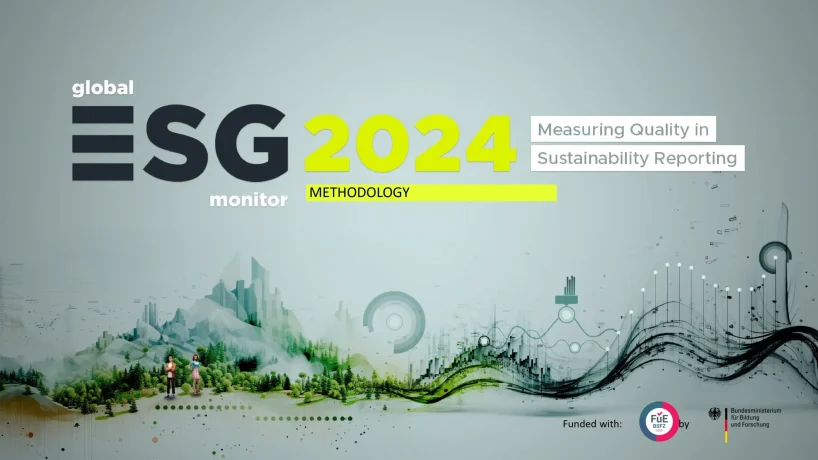
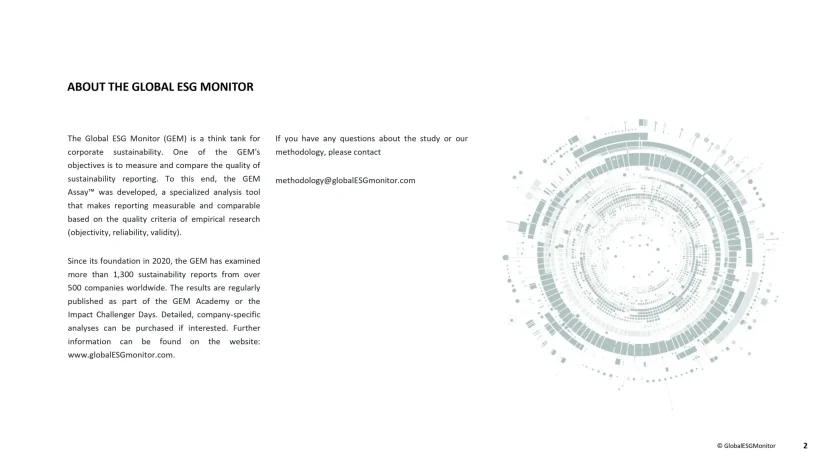
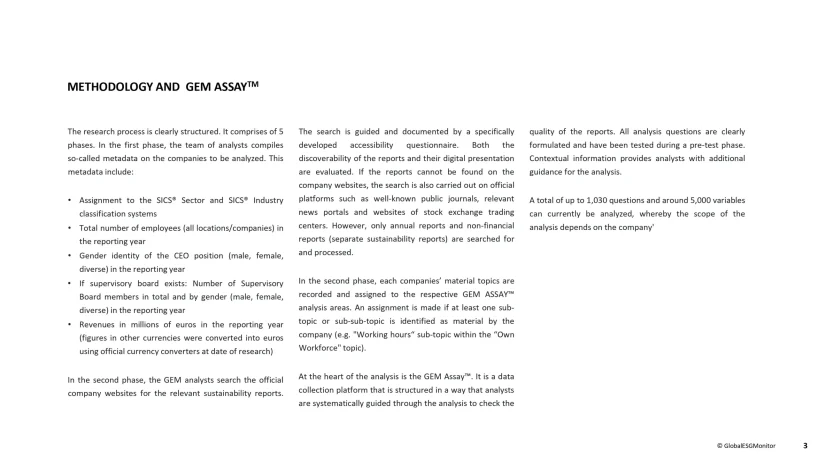
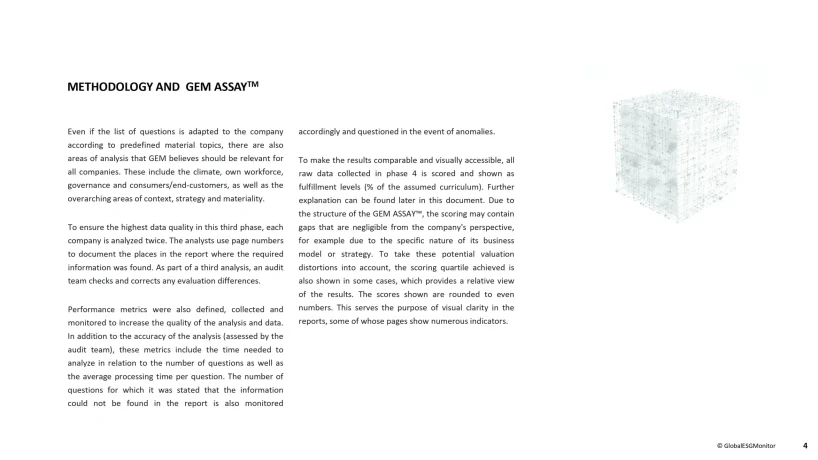
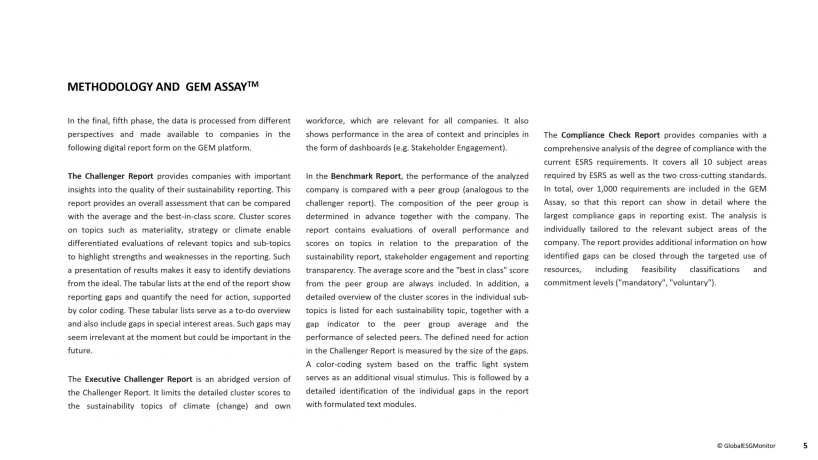
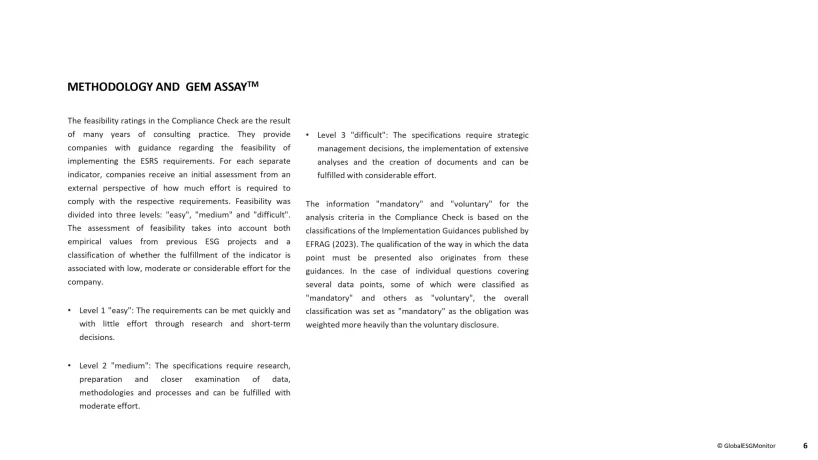
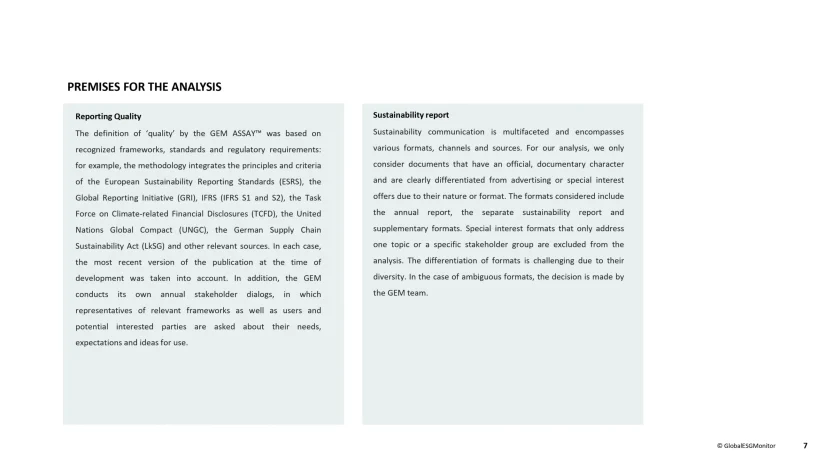
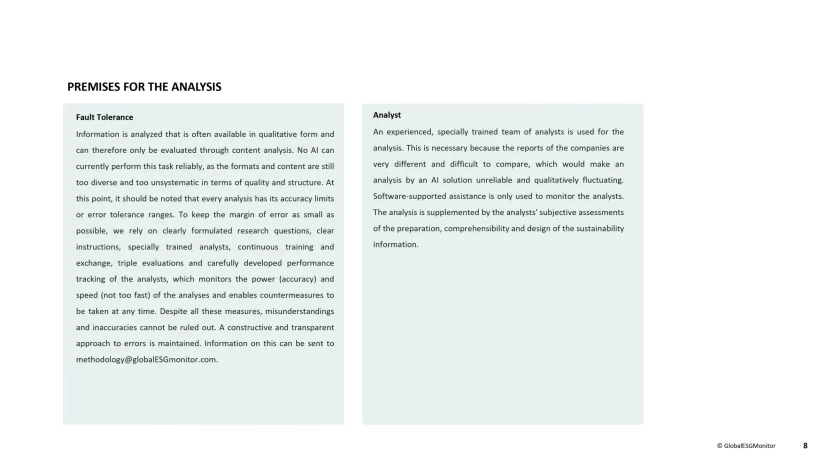
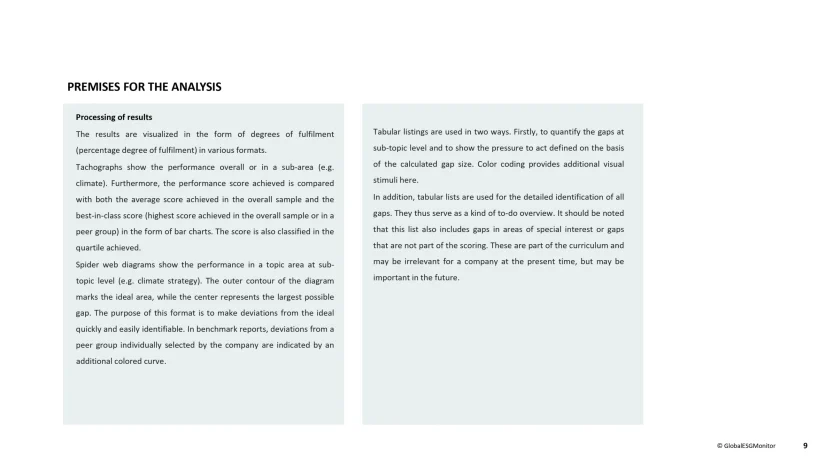
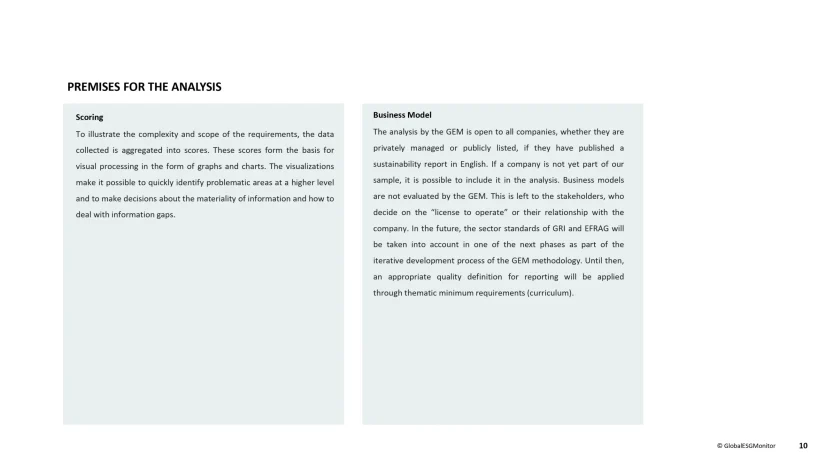
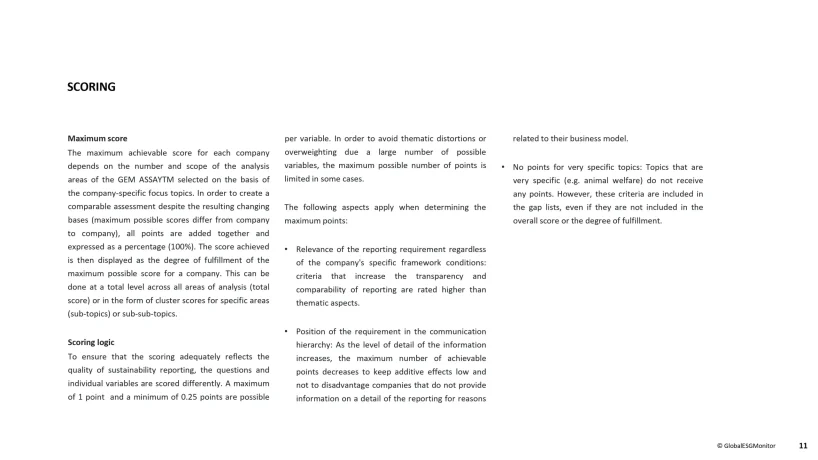
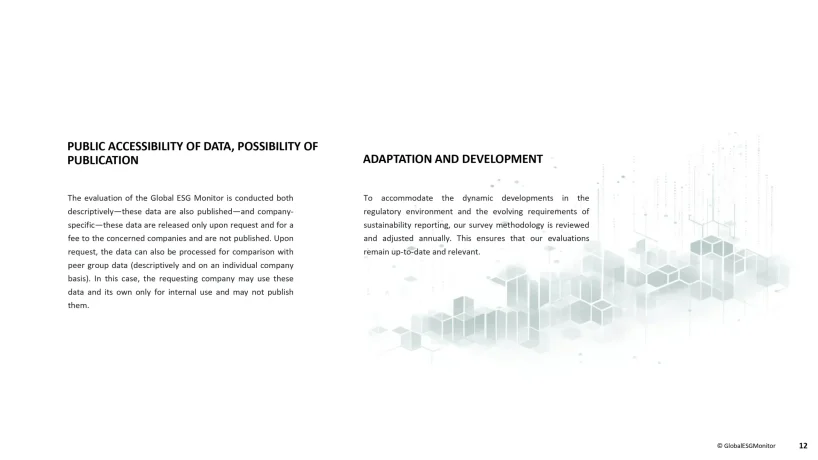
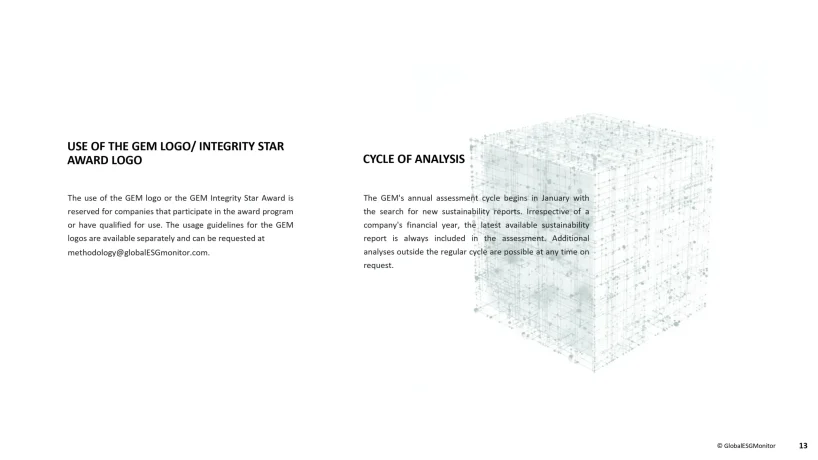
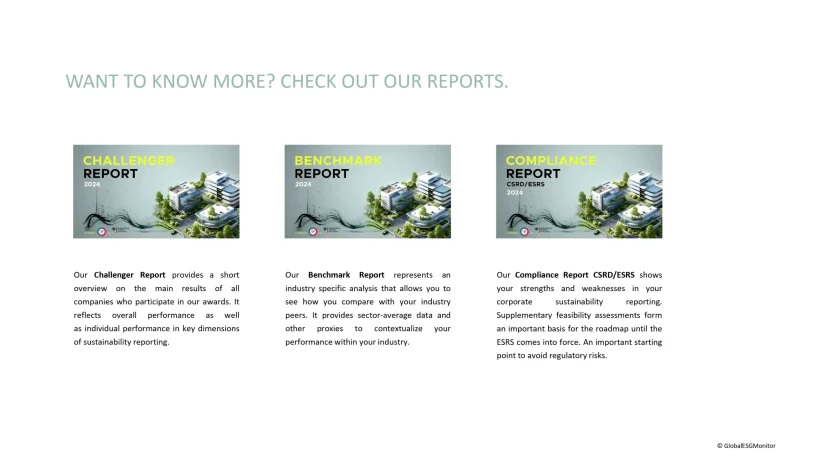
Feedback / Questions for our Methodology
In case you have any questions or feedback to our methodology, please contact us directly.
"(Required)" indicates required fields
Michael Diegelmann
michael.diegelmann@globalESGmonitor.com
Ariane Hofstetter
ariane.hofstetter@globalESGmonitor.com